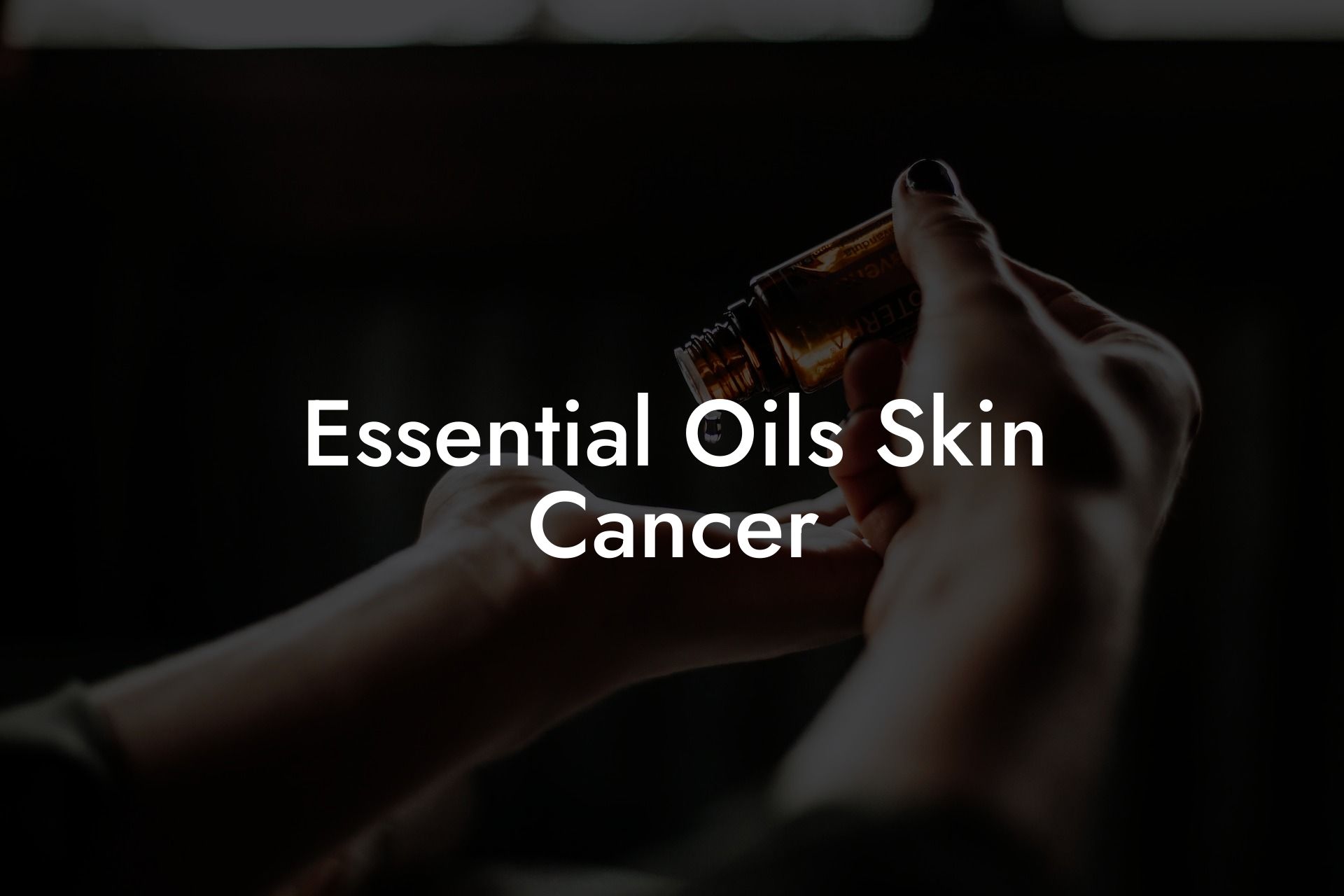Recent studies have revealed the encouraging potential of essential oils in combating skin cancer. With increasing awareness of the harmful effects of various traditional cancer treatments, many are seeking alternative and natural solutions. This article delves into the world of essential oils and their potential role in preventing and treating skin cancer.
Table of Contents
The Burgeoning Problem of Skin Cancer
Skin cancer is currently the most common type of cancer worldwide, with millions of people diagnosed every year. Prolonged exposure to the sun’s harmful UV rays is a primary cause, and other risk factors include family history and certain genetic mutations. Preventative measures, such as using sunscreen and avoiding excessive sun exposure, have become a priority for many. However, researchers are now exploring essential oils as a potential natural line of defense.
Essential Oils and Their Cancer-Fighting Properties
Essential oils, extracted from various herbs, plants, and flowers, have long been used for their therapeutic and medicinal properties. Recent studies have shown that certain essential oils possess potent anti-cancer properties, making them a subject of interest for researchers seeking alternative cancer treatments. Among the essential oils studied for their cancer-fighting abilities are:
Frankincense Oil
Derived from the resin of the Boswellia tree, frankincense oil has been used for centuries in traditional medicine. Its anti-inflammatory, wound-healing, and sedative properties are well-documented, but recent research indicates that it may also play a role in battling skin cancer. Studies have shown that frankincense oil can induce apoptosis (cell death) in cancerous cells while leaving healthy cells unharmed.
Lavender Oil
Lavender oil, known for its calming and stress-relieving properties, may have potential in fighting skin cancer. Studies have demonstrated its ability to inhibit the growth of skin cancer cells and reduce the risk of skin cancer development.
Myrrh Oil
Myrrh oil, obtained from the resin of the Commiphora myrrha tree, has long been valued for its healing properties. Recent research has revealed its potential anti-cancer activity, specifically in skin cancer cells. Myrrh oil has been shown to induce apoptosis and inhibit the growth of cancer cells.
Thyme Oil
Thyme oil, extracted from the leaves of the Thymus vulgaris plant, is prized for its antiseptic and antibacterial properties. Similar to lavender oil, thyme oil has demonstrated the ability to inhibit the growth of skin cancer cells and reduce the risk of skin cancer development.
How to Utilize Essential Oils for Skin Cancer
As promising as these studies may sound, it is important to note that essential oils should be seen as a complementary treatment and not as a replacement for traditional medical approaches. Always consult with a healthcare professional before incorporating essential oils into your skin cancer prevention or treatment plan. Some applications of essential oils for skin cancer include:
- Topical application: Dilute essential oils with a carrier oil, such as jojoba or coconut oil, before applying them to the skin. This can be useful for skin cancer prevention or as a complementary treatment in conjunction with other therapies.
- Aromatherapy: Inhaling the aromatic properties of essential oils has been shown to impact the limbic system, helping to induce relaxation and reduce stress, which may improve overall immune function and support the body’s natural defense against cancer.
- Internal use: Certain essential oils, such as frankincense, can be taken internally in small amounts. However, caution must be exercised and a healthcare professional consulted before taking essential oils internally.
Essential Oils Skin Cancer Example:
John is a 40-year-old man who has a family history of skin cancer and is concerned about his risk. He speaks to his healthcare provider about incorporating essential oils into his daily routine as an added measure of prevention. Having conducted thorough research, John decides to try applying a diluted mixture of frankincense and lavender oil to his skin twice a day. Along with regular sunscreen application and being mindful of sun exposure, he feels more at ease facing the risk of skin cancer and enjoys the additional positive effects of relaxation and stress relief from the essential oils.
Essential oils and their potential role in skin cancer prevention and treatment provide an exciting opportunity to explore alternative and natural solutions. While more research is needed, incorporating essential oils such as frankincense, lavender, myrrh, and thyme into a skin cancer prevention or treatment plan may offer valuable adjunctive benefits. Be sure to share this article with friends and family who may be interested in the potential of essential oils for skin cancer, and explore other guides and resources on Oshu Oils to deepen your knowledge and discover the full range of Oshu Oils products.





















